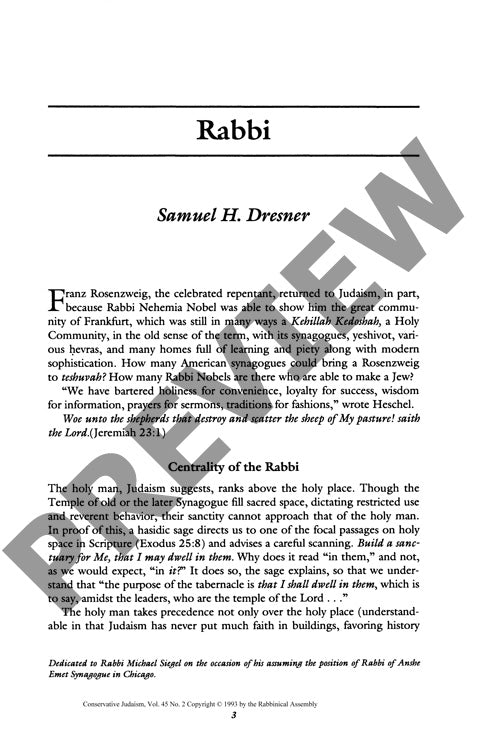Rabbi
Couldn't load pickup availability
The modern American rabbi faces a profound paradox: while synagogue life presents mounting challenges through diverse and often conflicting congregational demands, rabbinical leadership has become more vital than ever as communal Jewish learning and observance decline. Drawing upon traditional Jewish sources and historical precedents, this examination reveals how the rabbi's role has transformed from messenger of the community to God (shaliah tzibbur) in traditional societies to messenger of God to the community (shaliah Adonoy) in modern American Judaism. Through theological analysis, historical comparison, and contemporary observation, three critical challenges emerge: navigating compromise when serving less observant communities, balancing individual conscience with halakhic authority, and preserving traditional Jewish legal frameworks amid liberalization pressures. Examples from Franz Rosenzweig's return to Judaism and teachings from Abraham Joshua Heschel demonstrate how rabbis serve as living embodiments of Jewish tradition, necessarily maintaining higher standards of observance than their congregants. In an era of widespread assimilation, contemporary rabbis have become primary repositories of Jewish wisdom, positioning them as essential guardians of Jewish continuity and spiritual leadership for both the Jewish community and humanity at large.

More Information
-
Physical Description
-
Publication Information
Published 1993
ISBN
-
Publication Credits
Samuel Dresner

